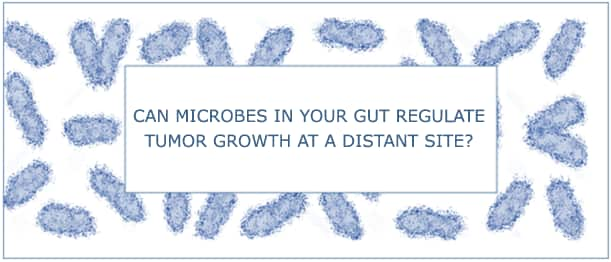Dr. Melanie Rutkowski
"it is important to establish a balance between working harder than you have ever worked in your life and knowing when to move forward or away from questions/projects that are not scientifically sound or novel."
I'm Melanie Rutkowski, and this is why I research.
Dr. Melanie Rutkowski is an Assistant Professor in Microbiology, Immunology, and Cancer Biology at the University of Virginia. She received her doctoral degree from Montana State University in the Department of Microbiology and Immunology and completed her post-doctoral work at Dartmouth College and The Wistar Institute, an NCI-designated Cancer Center. As Assistant Professor at the University of Virginia, a full member of the Carter Immunology Center, and having an appointment with the UVA Cancer Center, her lab studies how commensal microbes regulate immune homeostasis and immunity against tumors.
In this interview, Melanie provides insight into her current research program and scientific interests, advice to researchers seeking a tenure-track position, and glimpses into what makes her a preeminent scientist in one of Immunology’s hottest areas.
Would you tell us what sparked your interest in science?
Ever since I can remember, I have always been interested in understanding how the body copes during sickness and health. I loved the process of discovery and the potential for unveiling unanswered questions, utilizing the scientific process, and the elation when a hypothesis tests true. The scientific process, in all of its failures and small victories, is quite addicting.
It is fascinating that living organisms in our gut can drive the growth of a tumor in a distant anatomic location. Tell me more about how you came up with this hypothesis and what got you interested.
Throughout my entire scientific career, I have been interested in host/pathogen interactions. When I joined a tumor immunology lab during a second postdoc, it was a natural transition to try to understand how commensal microbes in the intestines influence systemic tumors, or tumors occurring out of the intestines.
Because of the recent literature that very nicely demonstrated the role commensals had in calibrating systemic immune responses, we wanted to know whether commensal microbes had a role in systemic tumor progression.
Tell me more about what exciting research projects are happening in your lab.
Currently we are using our understanding of how commensal microbes influence metastatic disease to characterize how the systemic environment supports invasion, survival, and metastatic growth of tumors outside of primary tumor beds. We are also interested in understanding how changes in immune homeostasis and the composition of commensal microbes might influence the progression of developing tumors.

Describe why your research is important to the ordinary citizen.
If we can contribute to understanding how changes in systemic immune function influence early breast tumor metastasis and define the macroenvironmental changes that result in metastatic disease several years after an initial breast cancer diagnosis, that could lead to the development of novel immunotherapies or targeted interventions aimed at preventing metastatic disease.
Describe what developments in the microbiome and immunology fields are most exciting to you.
Although it is all very exciting, I am currently passionate about understanding how commensal metabolism influences immune homeostasis.
It seems the microbiome regulates many biological processes. What area of microbiome research, outside of tumor immunology, are you most fascinated by?
Understanding how the host regulates commensal niches, understanding the relationship between commensal microbes and the brain, and understanding how the composition and function of commensal microbes changes after birth into adulthood.
Outside of tumor immunology, what research do you find especially exciting right now?
Any research involving mucosal immunology, autoimmune diseases, and host-pathogen interactions are all quite exciting.
Do you have any advice for someone interested in a tenure track position?
It is important to establish a balance between working harder than you have ever worked in your life and knowing when to move forward or away from questions/projects that are not scientifically sound or novel. It is also important to forget about the seemingly endless frustration, as it is inherent to the job. Once that happens, every small victory is so much sweeter. This allows you to focus on the larger picture of your research and prevents you from getting bogged down in the minutia of details that can sidetrack your progress. Finally, do not ever give up if that is your goal. If you do not get a faculty position this year, get help with your personal statement and chalk talk, work on advancing your projects and finding your niche. Then….try and try again.
And finally, if you could have one superpower, what superpower would that be?
My superpower would be to have the ability to spread compassion and eliminate fear and hatred by walking. Every step that I take would spread this feeling/state of being to others like a ripple in a pond and it would exponentially multiply as it touches other individuals. Eventually, this super power would result in a world where we had compassion for each other, this earth, and the creatures that inhabit the earth. The super power would forever eliminate fear and hatred.